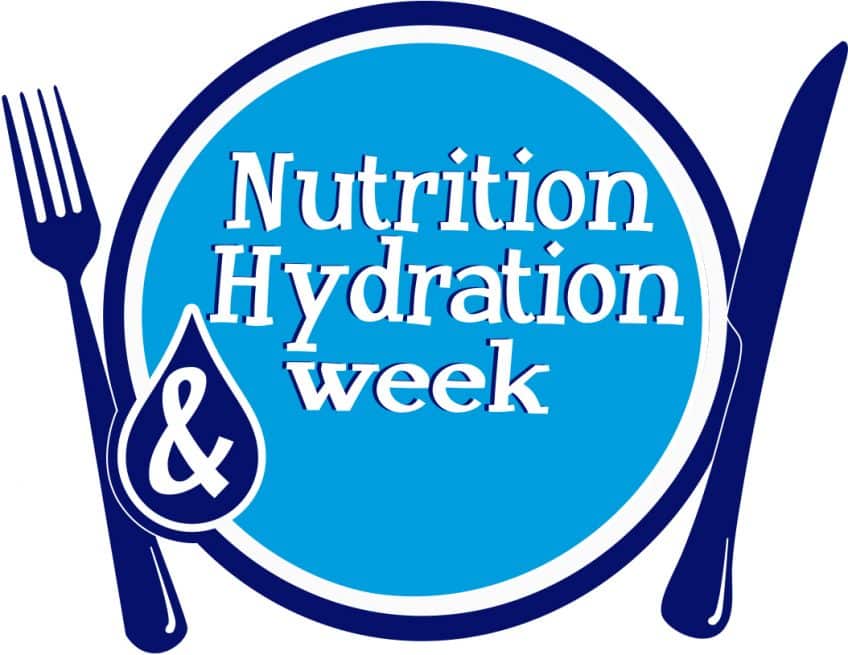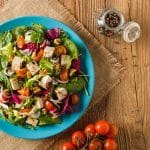
Nutrition and Hydration Week 12-18 March
Nutrition and Hydration Week aims to highlight improvements in the provision of nutrition and hydration locally, nationally and globally.
Encouraging your workforce to get involved with this event will help to promote this healthy message, encouraging positive choices when it comes to your food and drink intake.
The importance of good nutrition:
Good nutrition is king when it comes to looking after your health and wellbeing. Eating a balanced diet is vital to remain in good health. Everything you eat will influence how you feel mentally and physically.
Nutrition enables the body to grow, repair and build. No single nutrient will encompass all of these abilities, which is why a balanced diet is so important. Combining foods from the different food groups will enable your body to meet its nutritional needs each day.
The Eatwell Guide enables you to view how much your body needs each day at a glance.

In summary:
Fruit and veg
- Eat at least 5 portions per day
- Should make up one third of your daily food intake
- A single portion is 80g, which is 3 heaped tablespoons of veg, a desert bowl of salad or a single piece of fruit
- A single portion of dried fruit is 30g, limited to one per day
- Eat a variety of fruit and veg for maximum nutrition
Starchy carbohydrates e.g. potatoes, bread, rice and pasta
- Should make up one third of your daily food intake
- Choose high fibre options and wholegrain varieties e.g. brown rice and whole wheat pasta
Dairy and alternatives
- Good sources of protein, vitamins and calcium
- Choose low fat and low sugar options
- When buying dairy alternatives e.g. soya – choose unsweetened, calcium-fortified versions
Proteins e.g. pulses, fish, eggs and lean meat
- Pulses are a great alternative to meat as they are high in protein, fibre, vitamins and minerals but low in fat
- Other veggie options include tofu, bean curd and mycoprotein
- Eat 2 portions of fish a week – 1 portion being oily fish
- Grill meat instead of frying
- Eat no more that 70g of red or processed meat e.g. sausages, bacon, cured meats per day
Oils and spreads
- Fat is essential for good health
- Consume unsaturated fats as they are healthier and usually derived from plant sources
- Consuming unsaturated fats instead of saturated will help to maintain a healthy cholesterol level
- Fat is high and energy and should only be consumed in small amounts
Foods high in fat, salt and sugar
- Foods such as chocolate, cakes, biscuits, crisps, butter, ice cream and full sugar fizzy drinks are not needed in the diet and should therefore only be consumed infrequently and in small amounts
The importance of good hydration:
Your body is nearly two-thirds water and depends on water to survive.
Sufficient hydration ensures that many hidden functions are working within us, these include: Body temperature, removal of waste and lubricated joints.
Water should be consumed every day, with an average recommendation of 6-8 glasses – although this can vary depending on other factors such as your size, the weather and your physical activity. Without sufficient hydration you will feel tired, get headaches and not perform at your best.
Tips to ensure sufficient hydration:
- Drink water before, during and after exercise
- When you are hungry, drink water – a large percentage of the time that we feel hungry, we are in fact just thirsty
- Have a glass of water when you wake up, and with each meal throughout the day
- Add sliced fresh fruit to your water to avoid getting bored
- Keep a reusable bottle of water with you throughout the day and take regular sips
We have a vast range of Workplace Nutrition Services – click here to find out more, or give us a call on 07810 716758 for an informal chat.


